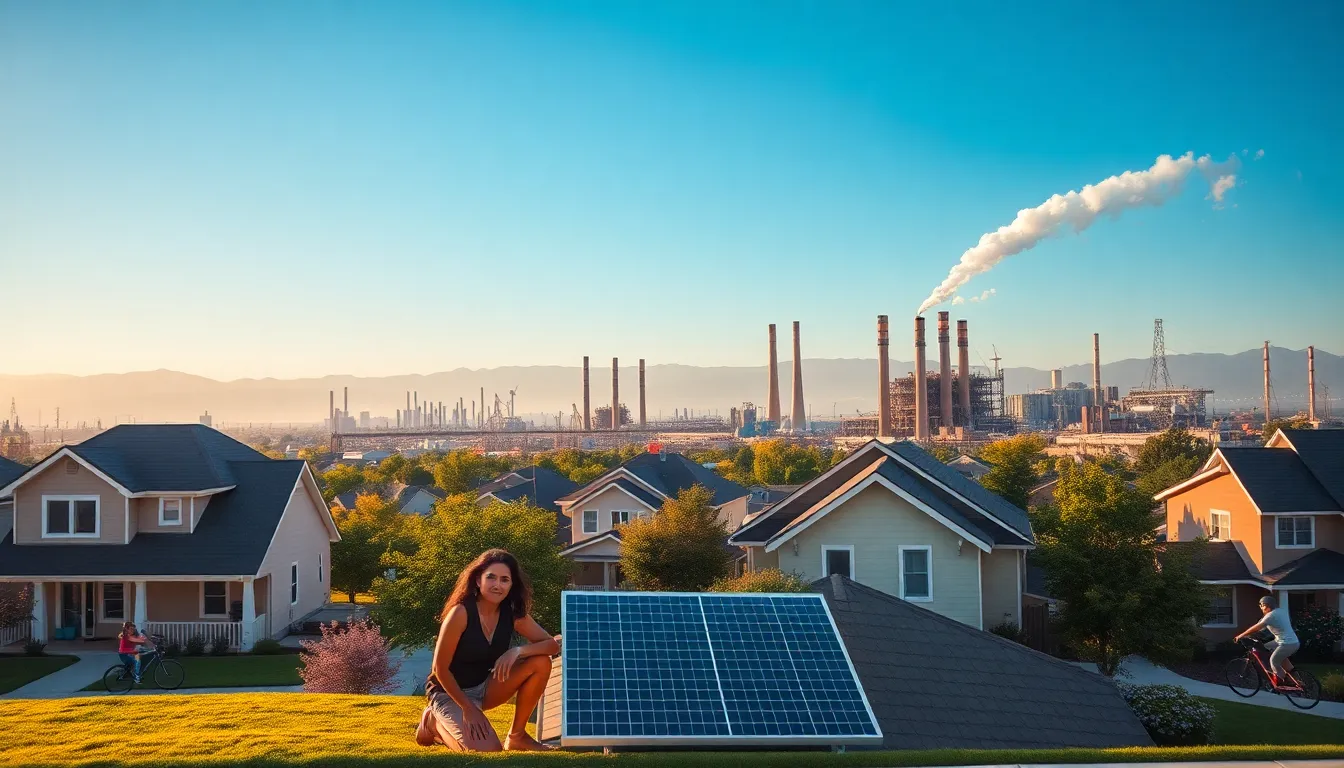In today’s world, energy consumption has become a central theme in discussions around sustainability, cost-saving, and environmental responsibility. With the demand for power escalating, understanding how to harness and optimize energy consumption is more crucial than ever. From individuals seeking to lower their utility bills to corporations aiming for eco-friendly practices, everyone can benefit from exploring innovative energy solutions. This article delves into the various aspects of energy consumption, the significance of efficiency, and the cutting-edge technologies driving transformation in the energy sector.
Table of Contents
ToggleUnderstanding Energy Consumption

Energy consumption refers to the amount of energy consumed by various activities, processes, and systems in personal, commercial, and industrial settings. The International Energy Agency (IEA) reports that global energy demand was about 6,542 million tonnes of oil equivalent (Mtoe) in 2020, highlighting the massive appetite for energy in every facet of modern life.
There are various types of energy consumers: residential households, commercial enterprises, and industrial facilities, each with distinct consumption patterns. For instance, residential energy use primarily revolves around heating, cooling, and powering appliances, while industrial energy consumption often focuses on machinery and manufacturing processes. Understanding these different usages is critical for developing targeted strategies to optimize energy efficiency and reduce waste.
The Importance of Energy Efficiency
Energy efficiency refers to using less energy to provide the same level of service, thereby reducing energy waste. It is a fundamental component in tackling climate change and diminishing environmental impacts. By improving energy efficiency across sectors, from homes to factories, societies can not only save money but also lower greenhouse gas emissions.
According to the U.S. Department of Energy, energy efficiency improvements can lead to significant savings on energy bills, amounting to billions of dollars annually. Also, energy-efficient technologies often lead to reduced maintenance costs, which further emphasizes their economic advantages. Investments in energy efficiency also stimulate job creation in industries focused on energy retrofits and upgrades, proving beneficial for the economy as a whole.
Innovative Energy Solutions
Innovative energy solutions are making strides in evolving the landscape of energy consumption and management. By leveraging technology, they aim to provide sustainable alternatives to traditional energy sources.
Renewable Energy Sources
The shift toward renewable energy sources has gained momentum as nations aim to reduce their reliance on fossil fuels. Renewables, including solar, wind, hydroelectric, and geothermal energy, are becoming increasingly viable due to technological advancements and falling costs. As reported by the IEA, renewables accounted for almost 30% of global electricity generation in 2021, a significant increase that reflects a growing commitment to sustainability.
Solar Power Technologies
Solar power technologies, particularly photovoltaic (PV) systems, harness sunlight to generate electricity. The ability to install solar panels on rooftops or in solar farms allows for localized energy production, decreasing the need for extensive energy transmission networks. Innovations such as bifacial solar panels and solar concentrators improve efficiency and broaden the potential for solar energy applications.
Wind Energy Projects
Wind energy is another crucial player in the renewable energy sector. Wind farms, both onshore and offshore, use the kinetic energy of wind to produce electricity. The U.S. Energy Information Administration reports that wind energy accounted for approximately 8.4% of total electricity generation in 2021. Ongoing advances in turbine technology continue to enhance efficiency and lower production costs, making wind power an increasingly popular energy solution.
Benefits of Adopting Energy Solutions
Adopting innovative energy solutions comes with a myriad of benefits. These solutions not only lower energy costs but also contribute to a healthier planet. Here are some key advantages:
- Cost Savings: By implementing energy-efficient practices and technologies, consumers and businesses alike can realize substantial savings on energy bills.
- Environmental Impact: Transitioning to renewable energy reduces carbon footprints and greenhouse gas emissions, promoting a more sustainable future.
- Energy Independence: Embracing local energy solutions lessens dependence on imported fuels, enhancing national energy security.
- Innovation and Job Creation: The growing energy sector fosters innovation and creates employment opportunities, contributing positively to the economy.
Challenges in Energy Management
Even though the numerous benefits associated with energy solutions, several challenges persist in energy management. Market volatility can cause fluctuations in energy prices, which complicate budgeting for consumers and businesses. Also, the initial investment for energy-efficient technologies and renewable solutions can be a barrier for some households and small businesses.
There is also a significant need for infrastructure improvements to support the integration of renewable energy sources into existing grids. Outdated energy policies may hinder the adoption of innovative solutions as well. Overcoming these challenges requires concerted efforts from governments, utilities, and consumers to drive policy changes, investments, and education.
Conclusion
The journey toward unleashing energy potential is not just about consumption: it’s about making informed choices that lead to sustainable practices. As innovative energy solutions continue to evolve, they offer viable pathways to not only enhance energy efficiency but also safeguard the environment. With a collective effort to adopt these advancements, society can achieve a future that harmonizes economic growth with ecological responsibility. Embracing these changes is crucial for realizing the full spectrum of benefits that increased energy efficiency and renewable sources can offer.

